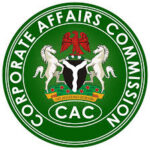Jennete Ugo Anya
The International Monetary Fund (IMF) has issued a stark warning about Nigeria’s deteriorating economic situation.
According to the IMF, stalled growth, high poverty rates, and severe food insecurity are exacerbating the country’s cost-of-living crisis. Key factors contributing to Nigeria’s economic woes include rising inflation, currency depreciation, and widespread business closures.
The IMF highlights low revenue collection as a major obstacle to providing essential services and public investment.
Nigeria’s debt to the IMF stands at $2.8 billion, with concerns raised about the country’s ability to meet its financial obligations. Despite recent policy reforms aimed at restoring stability, including fuel subsidy removal and exchange rate unification, challenges persist.
As Nigeria grapples with these economic challenges, the government faces mounting pressure to implement measures that will alleviate the suffering of its citizens and put the economy back on track. The IMF’s report serves as a stark reminder of the urgent need for decisive action to address Nigeria’s economic crisis and ensure a brighter future for all Nigerians.




